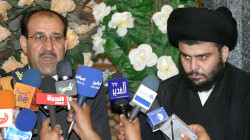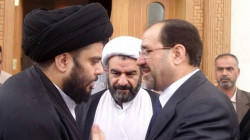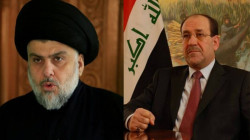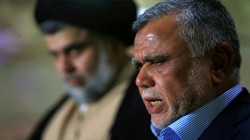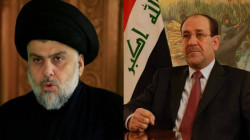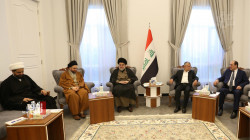Will it work? al-Maliki seeks reconciliation with al-Sadr via a third party
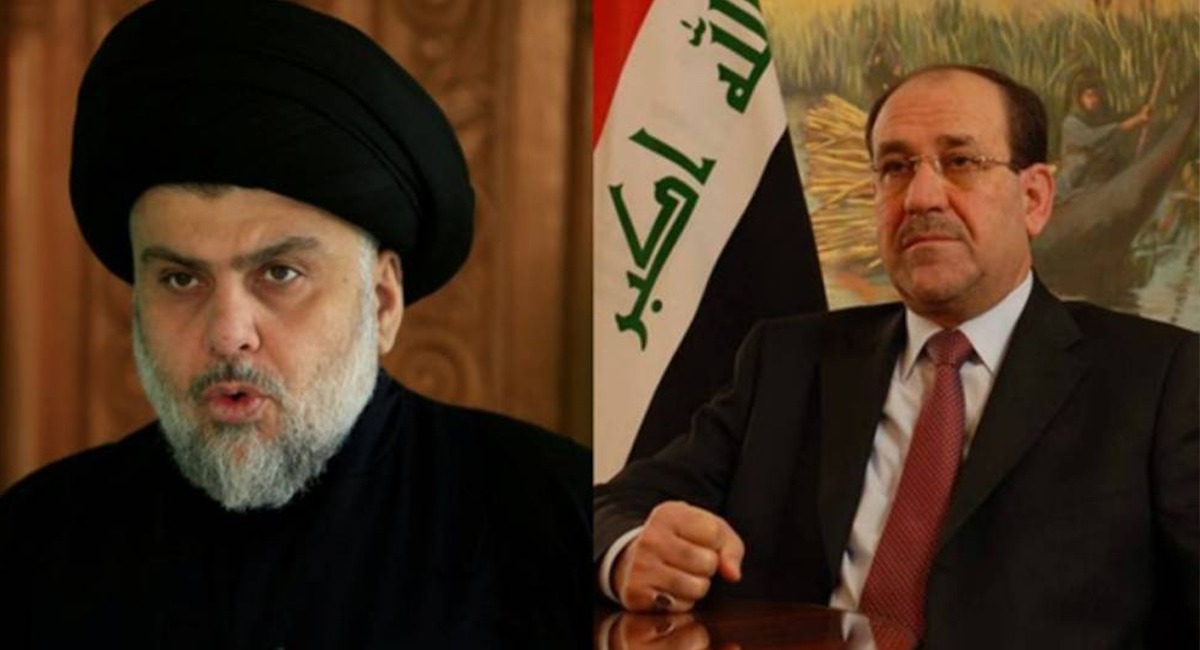
Shafaq News/ The former Prime Minister of Iraq, Nouri al-Maliki, recently raised the possibility of reconciliation between himself and the leader of the Sadrist Movement, Muqtada al-Sadr, when he spoke about their relationship. While al-Maliki expressed a "strong desire" for understanding and communication, through the mediation of a "third party," silence still prevails in the political sphere, amid speculation about the difficulty of reconciliation due to the numerous points of disagreement between them.
During his interview with the French radio station "Monte Carlo" two days ago, al-Maliki, who headed the Iraqi government for eight years (2006-2014), touched on his relationship with al-Sadr, saying that "the disagreement with him will end soon."
Al-Maliki has previously attempted to reconcile, negotiate, and dialogue with the Sadrist Movement on multiple occasions and meetings, according to Aref al-Hammami, a member of the State of Law Coalition led by Nouri al-Maliki. He confirmed that "reconciliation between them is important for the stability of the country, especially in light of the current political situation that no longer tolerates such conflict and division."
Al-Hammami, in a statement to Shafaq News agency, indicated that "the initiative has begun, and the dialogues are expected to begin thereafter," expressing his hope "to end such differences and severance, as it does not serve the interests of any party, nor the interests of the country as a whole."
A "third party" had presented al-Maliki with the notion of reconciliation with al-Sadr, and the former welcomed it and expressed "a strong desire" for it.
However, al-Sadr has not shown any signs yet regarding this mediation, according to a political source, indicating that "the issue of reconciliation with al-Maliki is not easy and needs time. The groundwork is not prepared, and the coordination framework has not provided the appropriate climate for the success of such efforts."
The source, who spoke to Shafaq News agency on the condition of anonymity, explained that "one of the main points of contention is that the [Coordination] framework wants to modify the election law and the Independent High Electoral Commission. If the modification continues, the Sadrist Movement will take a rejecting position, and also, the October Alliance and the independent lawmakers reject returning to the single district."
The source also pointed out that "al-Sadr froze all the joints of the movement, and the coordination framework was not able to provide any proposal that could satisfy him, so the ground is not suitable for any potential reconciliation."
According to the political researcher, Sheikh Safaa Al-Baghdadi, Muqtada Al-Sadr has closed his door to political elites. "Even when the Sadrist bloc was present and wanted to form the government, they negotiated with a section of the elites, separately from al-Maliki," he said.
Al-Baghdadi explained that "al-Sadr does not have personal animosity towards politicians for merely being politicians. He simply does not agree with those who have not provided any sort of service to Iraq."
Al-Baghdadi continued, "in al-Maliki's government, one-third of Iraq was taken over by ISIS, leaving waves of orphans and widows. The infrastructure was devastated, and weapons spawned everywhere after the collapse of the army and other forces in Nineveh, Saladin, and the other governorates. Al-Maliki failed miserably when he assumed power in both his first and second tenure."
He added, "not to mention the gravity of the threats attributed to al-Maliki in the notorious leaks. He spoke about attacking Najaf and killing scholars."
Al-Baghdadi concluded by saying that "al-Sadr follows the steps of the religious authority that has closed its doors to politicians. All he did was close his door to them as well. Al-Maliki now wants to show himself as a peacemaker, but he is not. We remember how he dealt with the protesters in Ramadi and described them as a bubble, and his government was not so kind towards them either."
